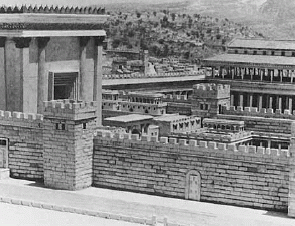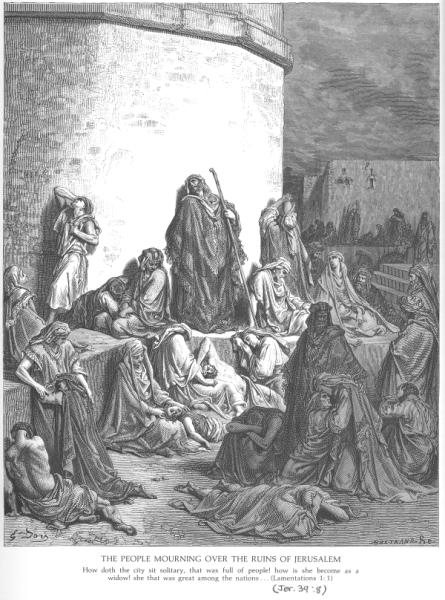 King Manasseh, son of Hezekiah, attained the throne of the Kingdom of Judah and reigned for 50 years. He was the most wicked and vile ruler ever known to the Israelites. Manasseh introduced the gods of the Assyrians, who were the super-power in the region. The Assyrians, and later the Babylonians, worshipped the heavens from their rooftops. These were family rituals that involved even the children, thus corrupting the rising generation. Astrology and divination were central to belief and worship.
King Manasseh, son of Hezekiah, attained the throne of the Kingdom of Judah and reigned for 50 years. He was the most wicked and vile ruler ever known to the Israelites. Manasseh introduced the gods of the Assyrians, who were the super-power in the region. The Assyrians, and later the Babylonians, worshipped the heavens from their rooftops. These were family rituals that involved even the children, thus corrupting the rising generation. Astrology and divination were central to belief and worship.
In addition, infants were sacrificed to the god Molech, including the offspring of the King. Fertility rites included temple prostitution. Manassah also killed the prophets:
“…he barbarously slew all the righteous men that were among the Hebrews; nor would he spare the prophets, for he every day slew some of them, till Jerusalem was overflown with blood.” ( Antiquities of the Jews, bk. 10, chap. 3, par. 3.)
King Josiah brought some relief. The temple had essentially been turned into a storage shed and had fallen into disrepair. He had the temple cleaned and restored. In the process, a book of the law, or the first five books of the Bible, was found. When Josiah read these scriptures, he wept, for he realized how far Judah had fallen. The people were totally unfamiliar with the scriptures and the law, after decades of neglect. Josiah tried to undo what Manassah had wrought upon the nation, but it was impossible to complete the work. He was unable to change the minds of the people. Josiah died in battle in the north.
Jehoiakim was king when Babylon took interest in the kingdom of Judah. He was paying tribute to Egypt, hoping for protection, but the plan failed. About 608 B.C. Nebuchadnezzar invaded and in about 605 B.C. Jehoiakim arrogantly revolted. The Babylonian army attacked and carried thousands off to Babylon, probably including the prophet Daniel and Ezekiel. It appears that Jehoiakim was also captured and died trying to escape.
Jehoiakin succeeded as king and was known to ravish the widows of the men he killed. The king and the people of Judah were ripening in iniquity. The Lord enumerated their sins. They took advantage of the poor, married outside the covenant, committed sexual sins like unto Sodom, worshipped idols, sacrificed their children, were dishonest in business, desecrated the temple, reviled and killed the prophets. Jehoiakin was taken to Babylon and imprisoned for many years. He was released by the son of Nebuchadnezzar.
Nebuchadnezzar robbed the temple three times, first when Jehoiakim was captured, second when Babylon came up against Judah again and took Jehoiakin, and third when Zedekiah was king and Jerusalem was destroyed.
Jehoiakim’s brother Zedekiah (also known as Mattaniah) took over the rule of the kingdom. Zedekiah listened only to “prophets” who gave him the news he wanted to hear. He imprisoned Jeremiah. The prophet Lehi was led into the wilderness by the Lord and then to the Americas. His descendants became the Book of Mormon peoples. When Bablyonian forces finished their job, killing most of the people they didn’t carry off to Babylon, they killed Zedekiah’s sons before him, blinded him, and finally killed him.
In the Book of Mormon we have an account of Lehi’s descendants happening upon a people hitherto unknown to them. They turned out to be descendants of Mulek, one of Zedekiah’s sons, who had avoided being killed by the Babylonians, and who had also been led to the New World by the Lord. (See Helaman 6:10 ; 8:21 and Omni 1:12–19 , then read Ezekiel 12:14 as a prophecy of Mulek’s escape.)
The best, brightest, and healthiest of the people of Judah were carried off into Babylon. The Lord amplified the suffering of the people by bringing on a drought and famine. Wild animals came down into the cities for lack of food and water and feasted on what people they could attack. Only the poor and indigent were left behind in Jerusalem, and the temple was ransacked.
Now, in the last days before the coming of Christ, we again have prophets who try to get us to repent and to prepare to meet God. Certainly, these prophets receive threats constantly, but they are not murdered, but mostly ignored.
Apathy brings less direct condemnation upon an individual than violence and murder, and yet the results of ignoring the modern prophets will be the same as they were for Judah. The world is rushing toward a spiritual disaster as great as any it has ever known (see Joel 2:2 ). Once again the prophets raise their voices, warning of impending disasters and pointing the way for national and personal salvation. And like Judah, the people of the world are unheeding.
*Parts of this article were adapted from the LDS Institute Old Testament manual.

